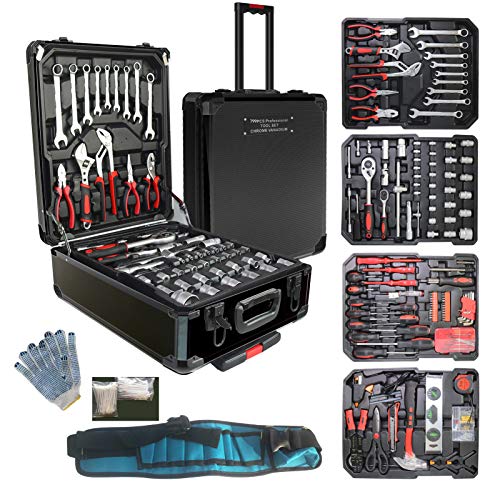OK aside from my newcomer post, here’s my first official post. Admin can please move it if it belongs somewhere else, but while the object of the discussion is not new, motives for it’s use are in fact varied. This is a long post and I apologize, but I cover what I think are at least couple of particular issues for those in search of a dependable used vehicle.
I plan to move back to the States in Feb.2019; gotta buy a vehicle of course. While I fully intend to have prospective vehicles inspected before buying, THAT can get seriously expensive! I thought buying a good OBDii device and plugging it in during the test drive can’t hurt. If it flags something potentially serious, I can weigh whether or not it’s worth paying a mechanic to look deeper or not. The dealer might even own up about the known problem once the cat is outta the bag?! Won't hold my breath! Now I researched and know the cheap OBDii’s around $35 are just crappy Chinese knockoffs of more serious models and are to be avoided at all costs. In fact, reading some OBDii related posts here, re-enforced what I read that seemingly they can CAUSE problems by malfunctioning and resetting things that ought not to be reset!
OK, so I bought “BlueDriver” (no affiliation-just my research that indicated this was best for what I needed). It’s an OBDii device designed and supported by mechanics. It has a free Bluetooth app that not only tells you the codes (et al), it shows you the possible problems linked to those codes and the most common solutions mechanics used to resolve those issues in your particular vehicle, in plain English. And they update the firmware with new capabilities. Sorry if it sounds like an ad (again no affiliation), I simply was sold upon doing my research, your mileage may vary. Yes, those OBDii’s that have fixed displays are interesting, but depending on where you park, you might be asking for a break-in? Not to mention those displays are made to be installed and carrying all that hardware into a used car dealerships vehicle versus a simple plug, might well (justifiably?) cause a dealer to say ‘not in my cars’!?
Yes, those OBDii’s that have fixed displays are interesting, but depending on where you park, you might be asking for a break-in? Not to mention those displays are made to be installed and carrying all that hardware into a used car dealerships vehicle versus a simple plug, might well (justifiably?) cause a dealer to say ‘not in my cars’!?
Yes, there be questions here!
Anyone used a good OBDii device before buying a used vehicle from a dealer? And before taking it to a mechanic for a thorough checkup? How’d you make out? Did the dealer balk? Did you have a mechanic check it anyway only to find some problem the OBDii would’ve flagged?
I would/will likely walk away from the dealer if the latter happens to me. I mean they’re diagnostic devices, as such they should do no harm (apart from aforementioned poorly designed cheapo knockoffs). Or OBDII's something used car dealerships just ban outright? I’ll still be glad I bought it for later use! Thanks in advance!
I plan to move back to the States in Feb.2019; gotta buy a vehicle of course. While I fully intend to have prospective vehicles inspected before buying, THAT can get seriously expensive! I thought buying a good OBDii device and plugging it in during the test drive can’t hurt. If it flags something potentially serious, I can weigh whether or not it’s worth paying a mechanic to look deeper or not. The dealer might even own up about the known problem once the cat is outta the bag?! Won't hold my breath! Now I researched and know the cheap OBDii’s around $35 are just crappy Chinese knockoffs of more serious models and are to be avoided at all costs. In fact, reading some OBDii related posts here, re-enforced what I read that seemingly they can CAUSE problems by malfunctioning and resetting things that ought not to be reset!
OK, so I bought “BlueDriver” (no affiliation-just my research that indicated this was best for what I needed). It’s an OBDii device designed and supported by mechanics. It has a free Bluetooth app that not only tells you the codes (et al), it shows you the possible problems linked to those codes and the most common solutions mechanics used to resolve those issues in your particular vehicle, in plain English. And they update the firmware with new capabilities. Sorry if it sounds like an ad (again no affiliation), I simply was sold upon doing my research, your mileage may vary.
Yes, there be questions here!
Anyone used a good OBDii device before buying a used vehicle from a dealer? And before taking it to a mechanic for a thorough checkup? How’d you make out? Did the dealer balk? Did you have a mechanic check it anyway only to find some problem the OBDii would’ve flagged?
I would/will likely walk away from the dealer if the latter happens to me. I mean they’re diagnostic devices, as such they should do no harm (apart from aforementioned poorly designed cheapo knockoffs). Or OBDII's something used car dealerships just ban outright? I’ll still be glad I bought it for later use! Thanks in advance!










































































